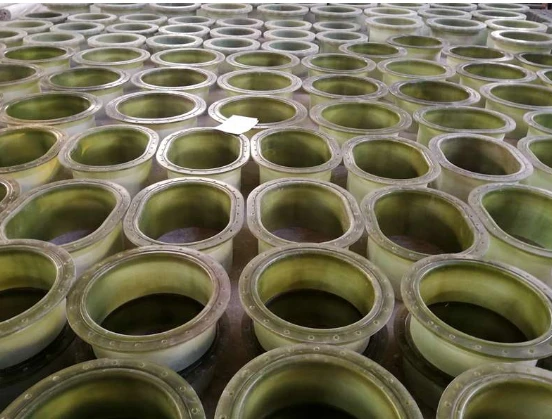
-
 Afrikaans
Afrikaans -
 Albanian
Albanian -
 Amharic
Amharic -
 Arabic
Arabic -
 Armenian
Armenian -
 Azerbaijani
Azerbaijani -
 Basque
Basque -
 Belarusian
Belarusian -
 Bengali
Bengali -
 Bosnian
Bosnian -
 Bulgarian
Bulgarian -
 Catalan
Catalan -
 Cebuano
Cebuano -
 China
China -
 China (Taiwan)
China (Taiwan) -
 Corsican
Corsican -
 Croatian
Croatian -
 Czech
Czech -
 Danish
Danish -
 Dutch
Dutch -
 English
English -
 Esperanto
Esperanto -
 Estonian
Estonian -
 Finnish
Finnish -
 French
French -
 Frisian
Frisian -
 Galician
Galician -
 Georgian
Georgian -
 German
German -
 Greek
Greek -
 Gujarati
Gujarati -
 Haitian Creole
Haitian Creole -
 hausa
hausa -
 hawaiian
hawaiian -
 Hebrew
Hebrew -
 Hindi
Hindi -
 Miao
Miao -
 Hungarian
Hungarian -
 Icelandic
Icelandic -
 igbo
igbo -
 Indonesian
Indonesian -
 irish
irish -
 Italian
Italian -
 Japanese
Japanese -
 Javanese
Javanese -
 Kannada
Kannada -
 kazakh
kazakh -
 Khmer
Khmer -
 Rwandese
Rwandese -
 Korean
Korean -
 Kurdish
Kurdish -
 Kyrgyz
Kyrgyz -
 Lao
Lao -
 Latin
Latin -
 Latvian
Latvian -
 Lithuanian
Lithuanian -
 Luxembourgish
Luxembourgish -
 Macedonian
Macedonian -
 Malgashi
Malgashi -
 Malay
Malay -
 Malayalam
Malayalam -
 Maltese
Maltese -
 Maori
Maori -
 Marathi
Marathi -
 Mongolian
Mongolian -
 Myanmar
Myanmar -
 Nepali
Nepali -
 Norwegian
Norwegian -
 Norwegian
Norwegian -
 Occitan
Occitan -
 Pashto
Pashto -
 Persian
Persian -
 Polish
Polish -
 Portuguese
Portuguese -
 Punjabi
Punjabi -
 Romanian
Romanian -
 Russian
Russian -
 Samoan
Samoan -
 Scottish Gaelic
Scottish Gaelic -
 Serbian
Serbian -
 Sesotho
Sesotho -
 Shona
Shona -
 Sindhi
Sindhi -
 Sinhala
Sinhala -
 Slovak
Slovak -
 Slovenian
Slovenian -
 Somali
Somali -
 Spanish
Spanish -
 Sundanese
Sundanese -
 Swahili
Swahili -
 Swedish
Swedish -
 Tagalog
Tagalog -
 Tajik
Tajik -
 Tamil
Tamil -
 Tatar
Tatar -
 Telugu
Telugu -
 Thai
Thai -
 Turkish
Turkish -
 Turkmen
Turkmen -
 Ukrainian
Ukrainian -
 Urdu
Urdu -
 Uighur
Uighur -
 Uzbek
Uzbek -
 Vietnamese
Vietnamese -
 Welsh
Welsh -
 Bantu
Bantu -
 Yiddish
Yiddish -
 Yoruba
Yoruba -
 Zulu
Zulu
frp storage tank
Understanding FRP Storage Tanks A Comprehensive Overview
In industrial environments, the choice of storage tanks is critical to ensuring the safety, efficiency, and reliability of operations. Among the various materials used for storage tanks, Fiber Reinforced Plastic (FRP) has gained significant popularity. This article delves into what FRP storage tanks are, their advantages, application areas, and maintenance practices.
What are FRP Storage Tanks?
FRP storage tanks are composite structures made by embedding fibers, typically glass or carbon, in a polymer matrix. This combination results in a material that is lightweight, strong, and resistant to corrosion, which makes it an ideal choice for storing a variety of liquids and gases. These tanks can be manufactured in various sizes and shapes, catering to the specific needs of different industries.
Advantages of FRP Storage Tanks
1. Corrosion Resistance One of the primary benefits of FRP tanks is their resistance to a wide range of chemicals. Unlike traditional metal tanks that can corrode over time due to chemical exposure, FRP tanks maintain their integrity, reducing the risk of leaks and contamination.
2. Lightweight FRP tanks are significantly lighter than their metal counterparts. This feature facilitates easier transportation and installation, especially in locations where heavy lifting equipment is not available.
3. Durability The structural integrity of FRP tanks ensures a long service life. They are designed to withstand harsh environmental conditions and remain functional over many years, providing a reliable storage solution.
4. Insulation Properties FRP materials provide good thermal insulation, making them suitable for storing temperature-sensitive fluids. This property helps in reducing energy consumption for heating or cooling applications.
5. Customization FRP tanks can be customized to meet specific requirements regarding shapes, sizes, and internal configurations. This flexibility allows industries to optimize their storage solutions according to operational needs.
Application Areas of FRP Storage Tanks
FRP storage tanks find applications in various sectors, including
- Chemical Industry Used for the storage of corrosive chemicals, acids, and bases, FRP tanks are favored in chemical plants for their resistance to harsh environments.
frp storage tank

- Water Treatment In water treatment facilities, FRP tanks are used to store water and chemicals such as chlorine and treatment agents, benefiting from their corrosion resistance and durability.
- Oil and Gas The oil and gas industry employs FRP tanks for storing various hydrocarbons and chemicals, where corrosion resistance is vital due to the aggressive nature of the materials involved.
- Pharmaceuticals Given the stringent requirements for cleanliness and non-contamination in the pharmaceutical sector, FRP tanks are often utilized to store solvents, raw materials, and finished products.
- Food and Beverage FRP tanks are also used in the food and beverage industry, where sanitary considerations are paramount. They are compliant with safety standards and do not leach harmful substances into stored liquids.
Maintenance Practices for FRP Tanks
While FRP storage tanks are robust and durable, regular maintenance is essential to prolong their lifespan and ensure safe operation. Here are some key maintenance practices
1. Regular Inspections Conduct frequent visual inspections to check for signs of wear, cracks, or delamination. Early detection of issues can prevent major failures.
2. Cleaning Protocols Establish cleaning protocols to remove residue and prevent corrosion. Use appropriate cleaning agents that do not harm the FRP material.
3. Monitor Environmental Conditions Be aware of the temperature, humidity, and exposure to ultraviolet (UV) light, as extreme conditions can affect the integrity of FRP.
4. Documentation Maintain thorough documentation of inspections, repairs, and maintenance activities. This data can be invaluable for compliance and operational efficiency.
Conclusion
FRP storage tanks offer a versatile, corrosion-resistant, and durable solution for a wide range of applications in various industries. Their lightweight nature and customization options provide added benefits compared to traditional storage solutions. However, adherence to regular maintenance schedules is crucial for ensuring the longevity and safety of FRP tanks. As industries continue to prioritize safety and efficiency, FRP storage tanks are likely to play an increasingly important role in modern operations.









